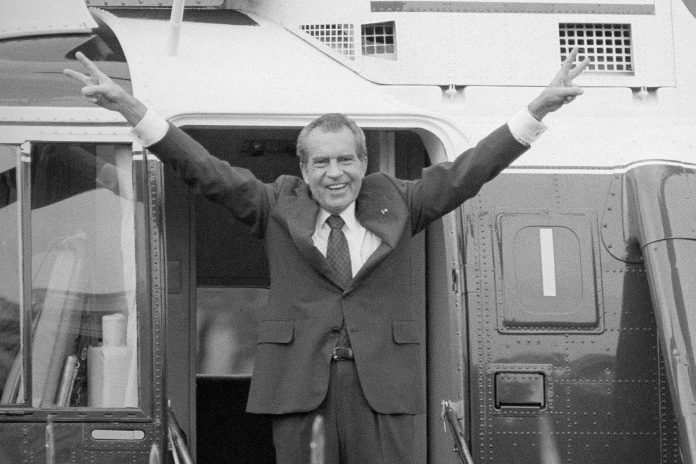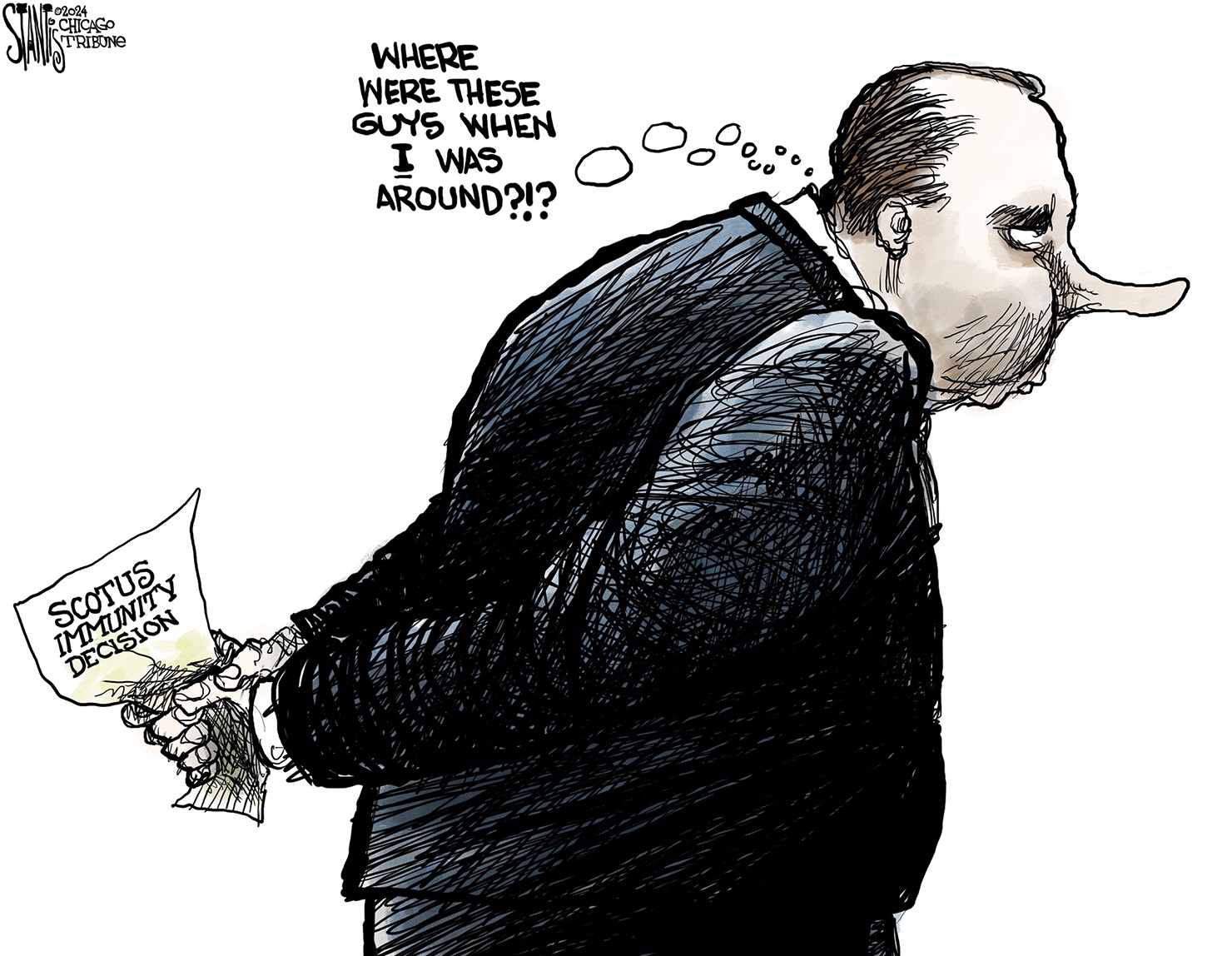
|
Only have a minute? Listen instead
Getting your Trinity Audio player ready...
|
Fifty years ago, on Aug. 9, 1974, Col. Ralph Albertazzie, then pilot of Air Force One, was flying over Jefferson City, M., with President Richard Milhous Nixon and his family on board. He was taking the Nixons home to California. Passing mid-Missouri air control, he received word that Vice President Gerald R. Ford had just been sworn in as president of the United States. Albertazzie contacted ground control and gave this message: “Kansas City, this was Air Force One. We are now redesignating as SAM 27000.”
The reversion of the plane to its assigned tail number indicated there was no longer a president on board. Nixon had resigned a few hours before and was heading into a shameful retirement. The resignation, the shame, the enduring stain on what was, in many ways, a laudable presidency was the result of Nixon’s presidential hubris and latent moral flaws.
I met Richard Nixon once. I was at the Western States Young Republicans’ Convention in Albuquerque, N.M., my freshman year of college (1965). A group of us had driven down from Colorado State College in Greeley, Colo., to the convention. It was a good time. The dynamic Barry Goldwater (fresh from his presidential drubbing) was the keynote speaker, but the person I remember most is Richard Nixon. Even knowing everything I do now about all the demons this man fought and gave in to, I can say that he was both warm and charming. I was with the group introducing him to the convention and, as we waited off-stage, he was chatty and gracious. His handshake was sincere and warm. He asked us questions while answering ours.
He was, frankly, good at the things presidents are good at: He could make you feel as if you were part of his inner circle just by making eye contact. He emitted an aura of sincerity. There was no doubt that Nixon had each of us in his corner when he regrouped, reinvented himself and ran for office again.

My very first presidential vote was cast in 1968 for Richard Nixon. (For my grandchildren, that was in the day when you had to be 21 to vote.) Then came Watergate and I realized that my vote had been cast for a man who did the one thing I don’t accept from anyone: He screwed with my Constitution. I voted for George S. McGovern in 1972. I knew the vote was wasted as far as electability went, but I thought there was a point to be made. There is a moral obligation to be a good American. If you can’t see beyond affiliation to substance, you are nothing but a dupe, and not a patriotic one at that.
Nixon had been made to resign because Sen. Goldwater, R-Ariz., U.S. House Minority Leader John Rhodes, R-Ariz., and U.S. Senate Minority Leader Hugh Scott, R-Pa., went to Nixon and made it clear that he faced certain impeachment, conviction and removal from office in connection with the Watergate scandal. Nixon had broken the law. He had counted on party loyalty to protect him from responsibility for his crime. He had broken faith with his friends, his party and his Constitution. Now, the leaders of his own party were telling him that they would not be complicit in his willful behavior.
This was when people were patriotic enough to put their country ahead of their party. If we had Republicans today made of the same stuff as Goldwater, Rhodes and Scott, we would not have to even smell Donald Trump, let alone put up with his second attempt to steal an election. Trump should have been convicted of his treasonous attempt to overthrow a lawful, free and fair election. But the leaders of Congress now do not have the moral fiber of those from my first election. I look at the current crop of GOP leaders and see only weakness. I look at their supporters and see only bigotry.
So now the hope, the volunteer time, the money, and most certainly the vote I used to give to a Republican Party that no longer exists goes to the Democrats instead. What both surprises and delights me is that I am absolutely overjoyed with the Harris-Walz ticket and every other Democrat down the ballot. We may not have a Goldwater anymore, but I still have my vote, and I will keep the faith by using it for the Democratic Party.
Louise Butler is a retired educator and published author who lives in Edinburg. She writes for our Board of Contributors.




